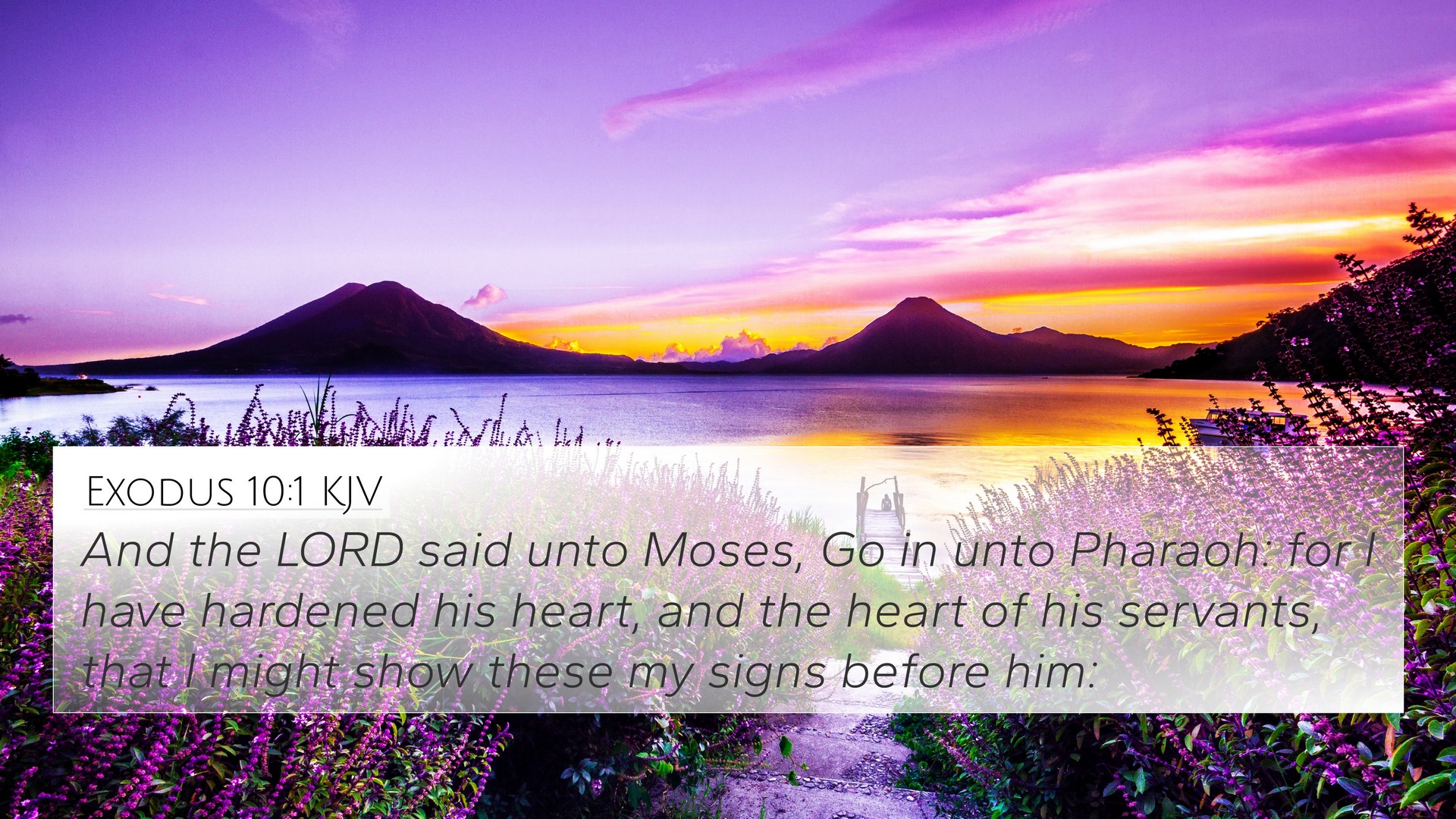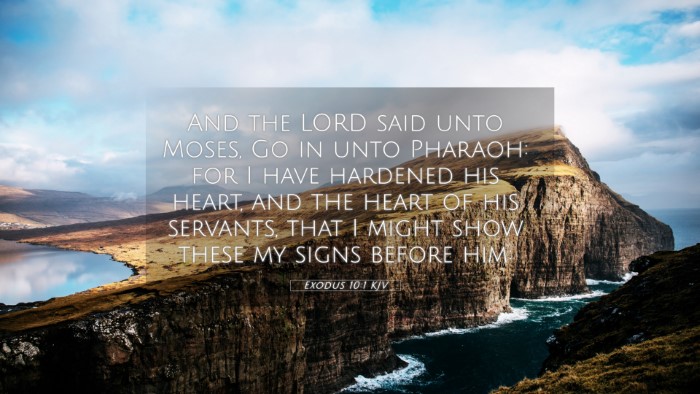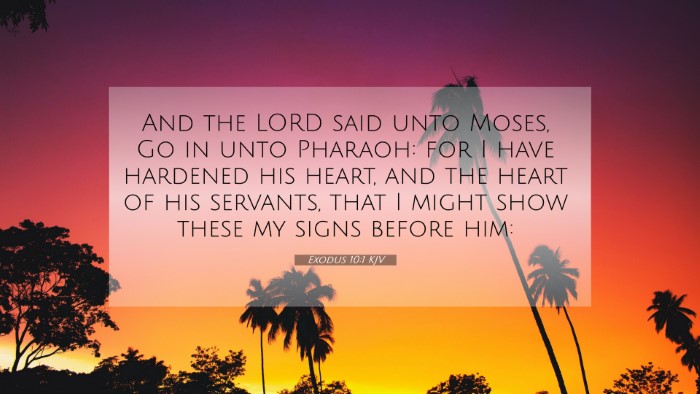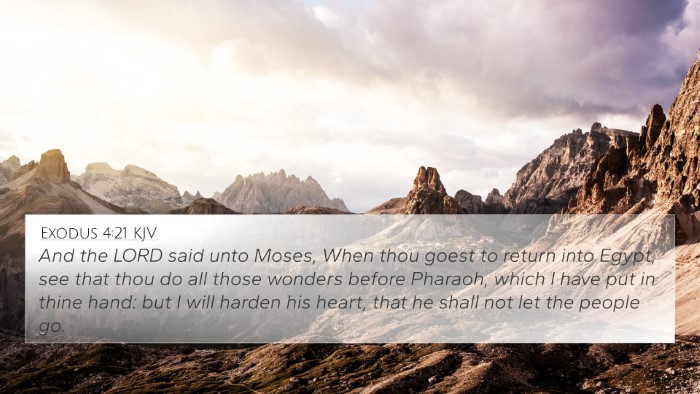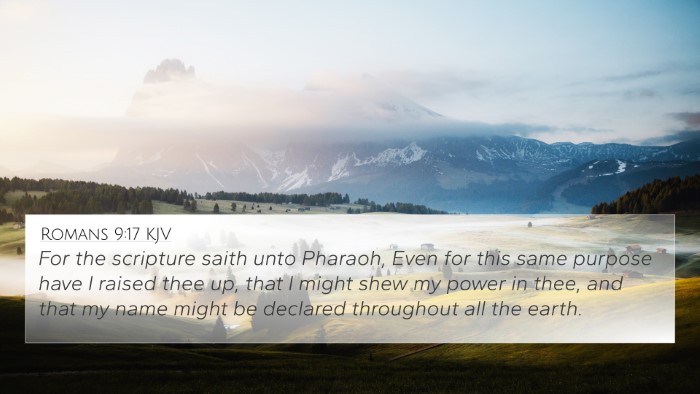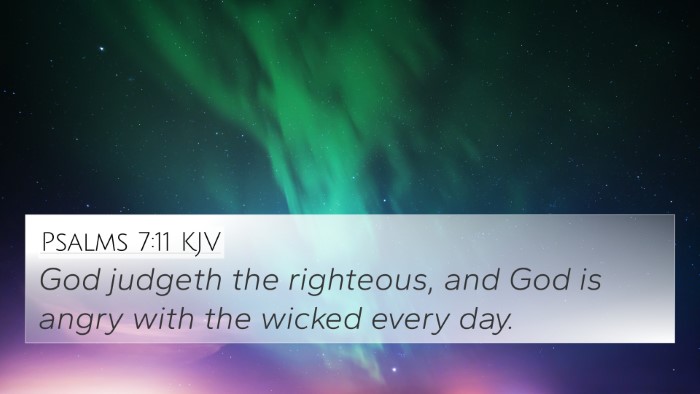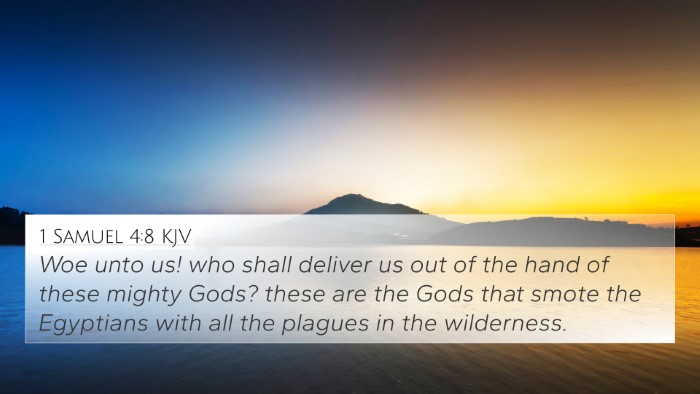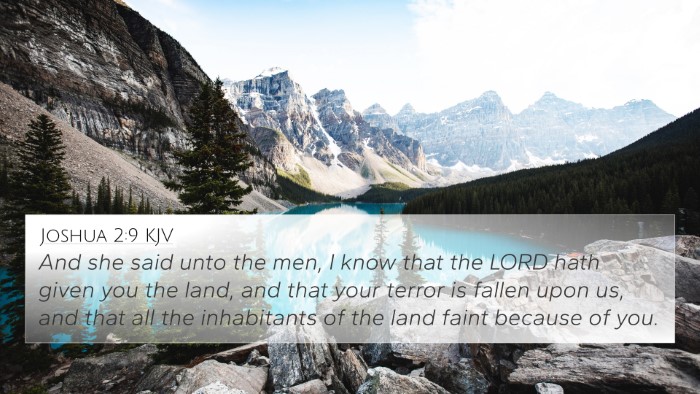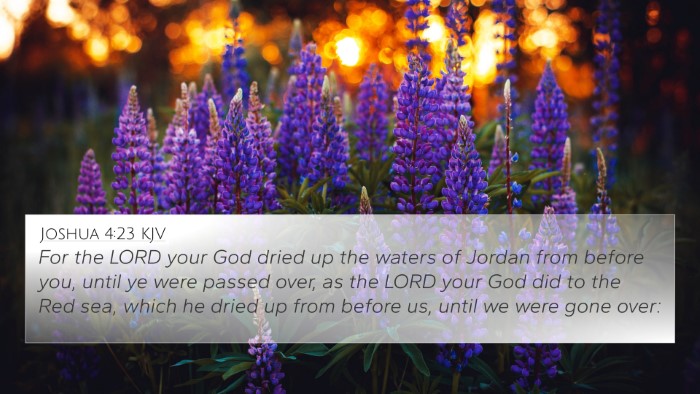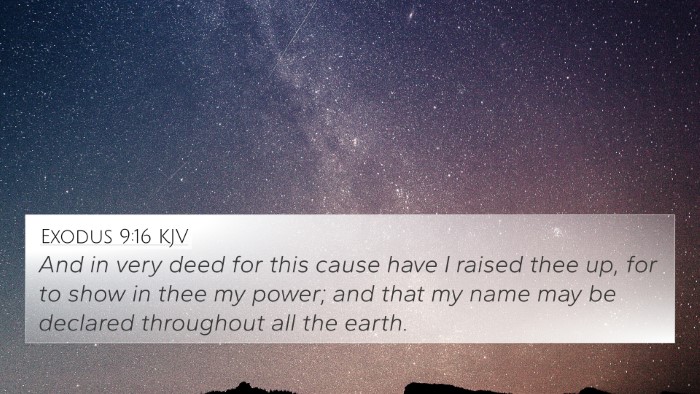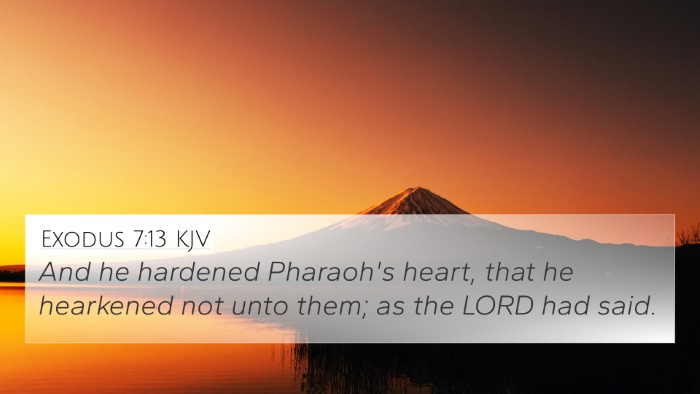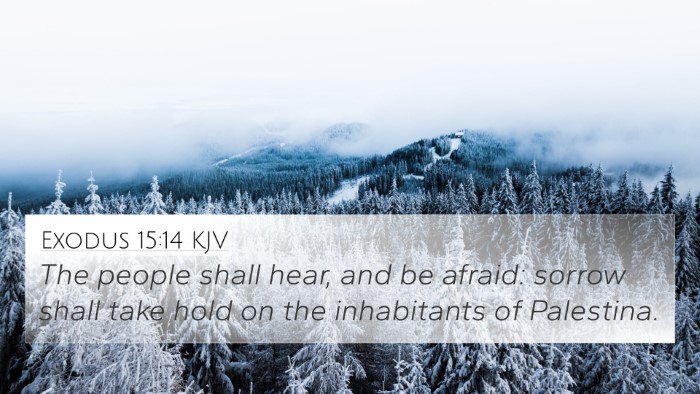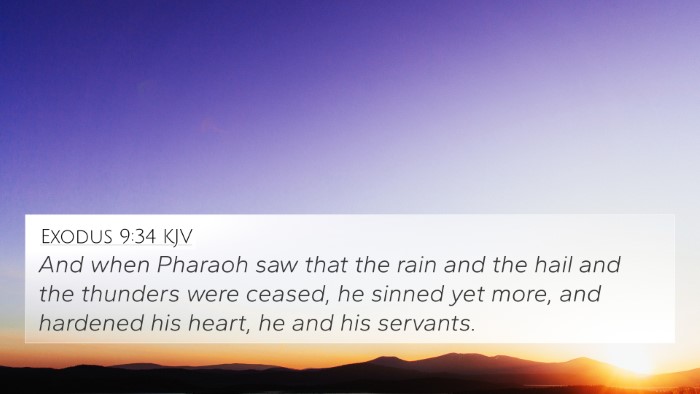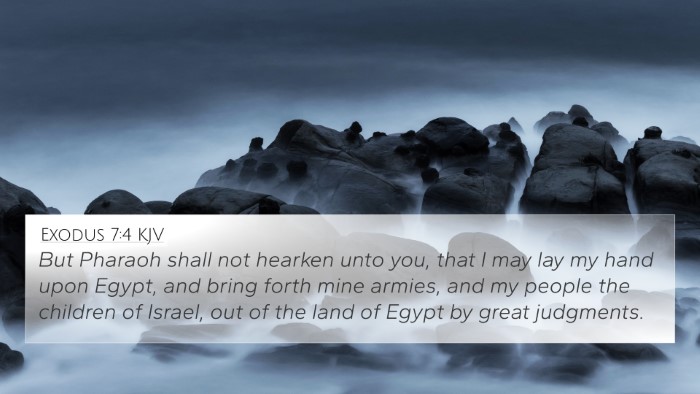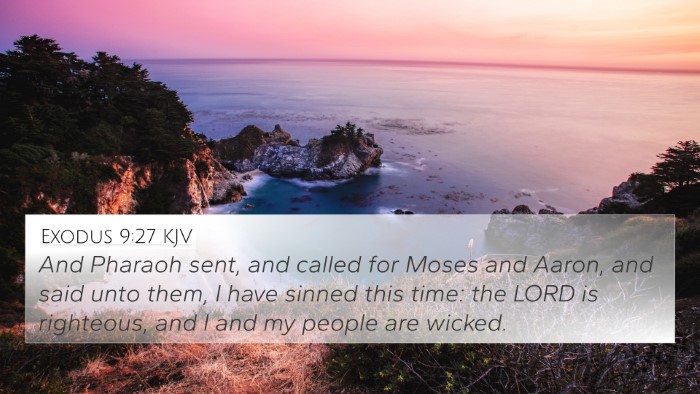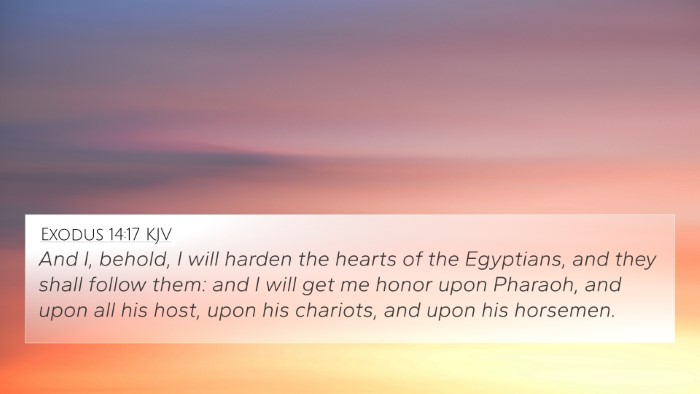Understanding Exodus 10:1
Exodus 10:1 states, "And the LORD said unto Moses, Go in unto Pharaoh: for I have hardened his heart, and the heart of his servants, that I might show these my signs before him." This verse is pivotal as it introduces a crucial moment in the narrative of the Exodus and serves as a profound illustration of God's sovereignty and the role of human agency.
Meaning and Interpretation
Divine Sovereignty: The verse emphasizes God's control over human hearts. Matthew Henry notes that the hardening of Pharaoh's heart was part of God's plan to display His power through the plagues. This raises questions about free will and divine intervention in human affairs, prompting a deeper exploration of Bible verse cross-references regarding God’s sovereignty.
Significance of Signs: The mention of signs demonstrates God's intention to reveal Himself to both Pharaoh and the Egyptians. Albert Barnes articulates that these signs were not just plagues; they were meant to elicit recognition of God's authority. This is echoed in other scriptures, where God displays His power through miraculous acts.
Cross-References
Exodus 10:1 relates to several other Bible verses that illuminate its themes:
- Exodus 7:3: "And I will harden Pharaoh's heart, and multiply my signs and my wonders in the land of Egypt." - Understanding the initial declaration of hardening Pharaoh's heart.
- Romans 9:17: "For the scripture saith unto Pharaoh, Even for this same purpose have I raised thee up, that I might show my power in thee, and that my name might be declared throughout all the earth." - Reflects on God's purpose using Pharaoh.
- 2 Thessalonians 2:11: "And for this cause God shall send them strong delusion, that they should believe a lie." - Illustrates the theme of God’s sovereignty over belief and disbelief.
- Isaiah 63:17: "O LORD, why dost thou make us to err from thy ways, and harden our heart from thy fear?" - A plea for understanding God's actions regarding the human heart.
- Matthew 13:15: "For this people's heart is waxed gross, and their ears are dull of hearing, and their eyes they have closed..." - Jesus cites this in reference to spiritual hardening.
- John 12:40: "He hath blinded their eyes, and hardened their heart; that they should not see with their eyes, nor understand with their heart..." - This speaks to the continuity of the theme of hardened hearts.
- Deuteronomy 2:30: "But Sihon king of Heshbon would not let us pass by him: for the LORD thy God hardened his spirit, and made his heart obstinate." - Another biblical account of God hardening hearts.
Thematic Connections
Examining Exodus 10:1 through thematic Bible verse connections can lead to a more nuanced understanding of the relationship between God’s interventions and human reactions in scripture. The hardening of hearts serves as a recurring motif, emphasizing the struggle between divine will and human agency in the narrative of redemption.
Reflection and Application
In reflecting on Exodus 10:1, readers are invited to consider:
- The balance between God's sovereignty and human responsibility.
- The purpose behind God performing signs and wonders in the lives of individuals and nations.
- How the hardening of one's heart can relate to spiritual blindness in our own lives.
Tools for Further Study
To deepen your understanding of this verse and others like it, utilizing Bible reference resources, such as:
- Bible concordances to locate similar themes across scripture.
- Cross-reference Bible study methods to trace connections between Old and New Testaments.
- Bible chain references to expand on specific themes and motifs.
Conclusion
Exodus 10:1 serves as a profound reminder of God's omnipotent nature and His ability to influence the course of human events. It invites believers to ponder the greater narrative of God’s redemptive work and the multifaceted relationship between divine authority and human choice, providing fertile ground for Bible verse parallels and deeper theological reflection.
